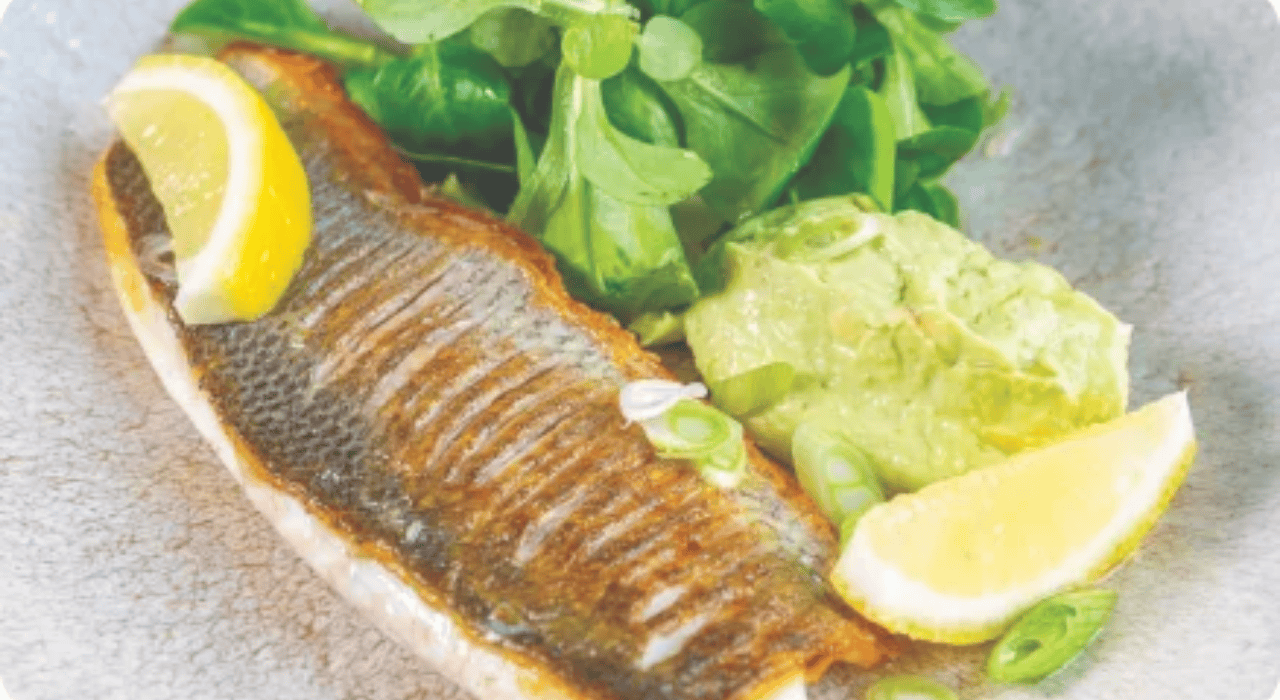Crohn's Disease Exclusion Diet (CDED)
The CDED is a whole foods diet designed to eliminate or reduce exposure to specific foods that may be harmful in Crohn's disease while increasing foods that may be beneficial to the microbiome.


About the Crohn's Disease Exclusion Diet
The CDED is a whole foods diet designed to exclude or limit exposure to foods that may adversely affect the microbiome or alter intestinal barrier function.1,2
The CDED is initiated in three phases and is combined with Partial Enteral Nutrition (PEN) from formula (Modulen IBD®) in declining amounts, with the last stage maintaining 25% of daily intake from PEN. See details about the CDED below. In patients uninterested or unable to use Exclusive Enteral Nutrition, CDED is an effective alternative for inducing remission,3,4 and it may provide a more effective option than standard diet plus PEN for maintaining it.
The effects of the six-week induction phase of CDED were first reported in pediatric Crohn's disease in 20143. The 12-week induction phase in children and adults failing biologics was reported in 20172 with a comparison of CDED + PEN vs EEN in 20191 and data in adults with Crohn's disease in 20215. See all CDED research below and ongoing trials.
References
- Levine, A., Wine, E., Assa, A., Sigall Boneh, R., Shaoul, R., Kori, M., Cohen, S., Peleg, S., Shamaly, H., On, A., Millman, P., Abramas, L., Ziv-Baran, T., Grant, S., Abitbol, G., Dunn, K. A., Bielawski, J. P., & Van Limbergen, J. (2019). Crohn’s Disease Exclusion Diet Plus Partial Enteral Nutrition Induces Sustained Remission in a Randomized Controlled Trial. Gastroenterology, 157(2), 440-450.e8. https://doi.org/10.1053/j.gastro.2019.04.021
- Sigall Boneh, R., Sarbagili Shabat, C., Yanai, H., Chermesh, I., Ben Avraham, S., Boaz, M., & Levine, A. (2017). Dietary Therapy With the Crohn’s Disease Exclusion Diet is a Successful Strategy for Induction of Remission in Children and Adults Failing Biological Therapy. Journal of Crohn’s and Colitis, 11(10), 1205–1212. https://doi.org/10.1093/ecco-jcc/jjx071
- Sigall-Boneh, R., Pfeffer-Gik, T., Segal, I., Zangen, T., Boaz, M., & Levine, A. (2014). Partial Enteral Nutrition with a Crohnʼs Disease Exclusion Diet Is Effective for Induction of Remission in Children and Young Adults with Crohnʼs Disease: Inflammatory Bowel Diseases, 20(8), 1353–1360. https://doi.org/10.1097/MIB.0000000000000110
- Herrador-López M, Martín-Masot R, Navas-López VM. EEN Yesterday and Today … CDED Today and Tomorrow. Nutrients. 2020;12(12):3793. Published 2020 Dec 10. doi:10.3390/nu12123793
- Yanai, H., Levine, A., Hirsch, A., Boneh, R. S.,Kopylov, U., Eran, H. B., Cohen, N. A., Ron, Y., Goren, I., Leibovitzh, H.,Wardi, J., Zittan, E., Ziv-Baran, T., Abramas, L., Fliss-Isakov, N., Raykhel,B., Gik, T. P., Dotan, I., & Maharshak, N. (2022). The Crohn’s diseaseexclusion diet for induction and maintenance of remission in adults withmild-to-moderate Crohn’s disease (CDED-AD): an open-label, pilot, randomisedtrial. The LancetGastroenterology & Hepatology, 7(1), 49–59. https://doi.org/10.1016/S2468-1253(21)00299-5
CDED Food List Overview
The food list provided is a simplistic overview of the basic requirements of the diet, offering a bird's eye view of restricted and allowed foods. It is not an all-inclusive list of the allowed and restricted foods, nor does it define all the rules of the diet.
This list should NOT be used as a guide to following the diet. Consult with a dietitian trained in CDED.
Details about the CDED
The CDED is managed a little differently from the other diets. The CDED is divided into three phases. The first two 6-week phases are grouped together as the Induction Phase, which is used for inducing remission.
The first six-week phase of the Induction Phase limits insoluble fiber to prevent bowel obstructions. The second 6-week phase adds back in many of these vegetables by week 10. The Induction Phase is the most important phase of the diet and is required for efficacy. Working with a dietitian trained in CDED is strongly advised to be successful.
The Maintenance Phase is used after remission is achieved and is intended to sustain that remission. However, the principles of the diet are best represented by the Induction Phase, with the Maintenance Phase opened up to include some foods not necessarily recommended to promote better long-term compliance.
The published studies to date primarily evaluate the 6-12 week Induction Phase, so the scientific evidence is most robust at this time for the Induction Phase and is in progress for the Maintenance Phase. The chart shows the included foods in the Induction Phase and the Maintenance Phase separately.
The Maintenance Phase requires five contiguous days following the diet. It allows for a maximum of two contiguous days (generally weekends) of two free meals per day (maximum of four free meals per week), excluding only hot dogs, sausages, soft drinks, luncheon meats, bacon, and frozen dough from those free meals.
After week 6: 1 can tuna per week
Weeks 7-9: Potatoes, sweet potatoes, and yams allowed.
Weeks 10-12: Allowed
Weeks 7-9: Red Peppers also allowed.
Weeks 10-12: Allowed
Weeks 7-9: Add zucchini, mushrooms, broccoli, cauliflower
Weeks 10-12: All veggies allowed except kale, leeks, asparagus, and artichoke.
Weeks 7-10: Pears, peaches, kiwis, and blueberries are also allowed.
Weeks 11-12: Mangos, pineapples, and oranges are also allowed.
CDED Research articles
Delicious and Nutritious Recipes
Explore all recipesOur recipe section offers a wide range of options that align with various nutritional therapies, ensuring you can find meals and snacks that are both flavorful and supportive of your dietary needs.
Additional CDED Resources





Support our Mission
Your donation will help us to enhance the well-being and health outcomes of patients with IBD.
Donate Donate
Donate





